DTE Energy is working to reduce power outages, but can Detroit residents afford to wait?
Russ McNamara, Zaire Daniels August 25, 2023A new substation is set to be completed in Detroit’s Islandview neighborhood later this year — upgrading old, dirty technology.
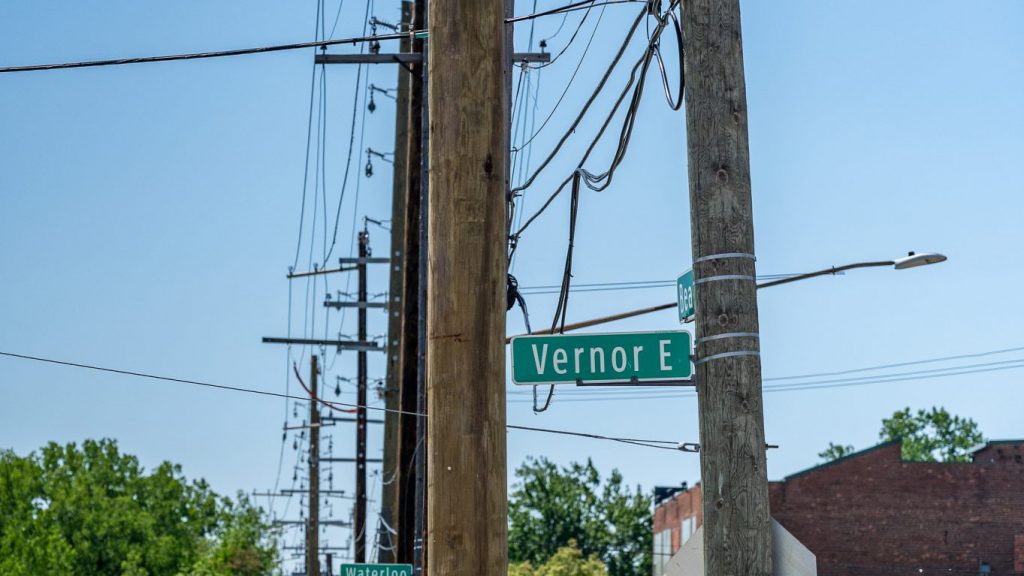
Vernor street sign in Detroit, Mich. (Photo credit: Russ McNamara, WDET)
In February 2023, an ice storm caused over 300,000 DTE Energy customers in Metro Detroit to lose power. Some residents went without electricity and heat for over a week.
Severe thunderstorms are having the same effect this summer, causing widespread outages and cutting off air conditioning. While residents are facing hardships, DTE Energy seeks to update the existing infrastructure to meet the needs of its customers.
Ryan Stowe, vice president of DTE Energy’s Distribution Operation, explains the situation by saying there’s a lot to maintain.
“There’s 1.2 million [utility] poles. I think it’s another 15,000 miles of underground [lines] and 33,000 miles of overhead lines,” Stowe says.
It takes a lot to run a thriving city like Detroit, but much of the utility’s framework has been around since the Detroit Edison Company’s (DTE’s previous name prior to 1996) founding in 1903.
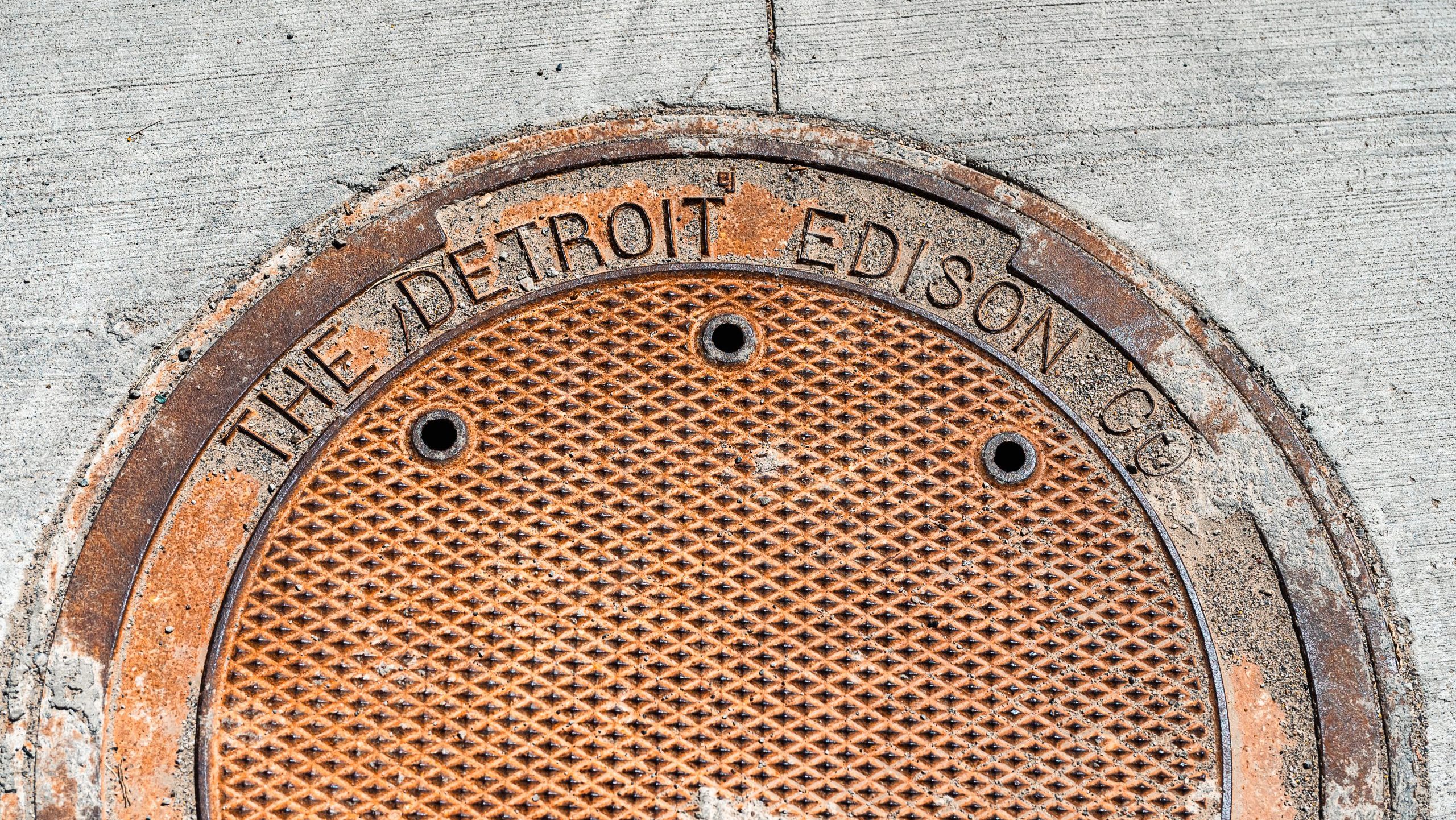
WDET’s Russ McNamara rode along with Stowe to tour areas in the city where DTE Energy has made improvements to the energy grid.
At a stop in Detroit’s Milwaukee Junction neighborhood, Stowe pointed out some of the work to retrofit utility poles with modern technology.
“With the hardening work, what we’re trying to do is replace all the old pole top infrastructure that weakens and degrades over time,” Stowe explains.
Power lines are exposed to winds, rain and ice, which degrade the effectiveness of the device over time. Tree branches snapping and snagging lines only make the problem worse.
Listen: DTE Energy is working to reduce power outages, but can Detroiters afford to wait?
The next stop was the Kettering neighborhood near Van Dyke and Gratiot Ave where the degradation was prominent.
Power lines protrude from poles and intertwine together like a tangled pair of headphone wires. The coiled insulator pieces were marked with years of wear and tear.
These conditions are quite common on Detroit’s east side. Geraldine Orr, who lives nearby in the Gratiot Grand neighborhood, says just about any inclement weather condition will cause her entire block to lose power.
“It’s just sad because we have too many elderly neighbors in this neighborhood that don’t need to be in the dark, and I am one of them,” Orr says.
Many of the residents living in the area are on fixed incomes and struggle to replace food when outages happen and the reimbursement is too low.
“Just fix it right…and we’ll be happy with that.” – Geraldine Orr, DTE Energy customer
A block over on Burns Ave, Carol McIntyre says that her household experiences power outages about four to five times a year. Residents have to go to the store for ice so food doesn’t go bad in the refrigerator.
Then there’s more direct impacts to health.
“It’s really terrible since the summer because I use air conditioner and have COPD [chronic obstructive pulmonary disease] and asthma,” McIntyre says. “It affects me being able to use my tool that allows me to breathe again.”
At this point, people are frustrated at paying into a broken system.
“I just wish they would get out here and fix this stuff right instead of rigging stuff so they can come back out here. Just fix it right you know and we’ll be happy with that,” Orr says.
DTE Electric President Trevor Lauer acknowledges what customers are going through.
“I have to start by apologizing to our customers because when they’re out of power that’s a bad day for them and it’s a bad day for us,” Lauer says.
However, he stresses not everyone can be helped at once.
“Not every area of our system is not working well,” states Lauer. “In fact, less than half of our customers have an outage every year, so we have to prioritize where we put the investment into the grid to make sure that’s having maximum impact for the actual customers.”
Plans are underway to start rebuilding the infrastructure in the Kettering and Gratiot Grand neighborhoods later this year to allow for higher voltages and improve reliability.
“We’re going to come through and replace all the poles, all the conductors, all the equipment. The switches, the fuses, all of that,” Stowe shares.
A new substation is set to be completed in the city’s Islandview neighborhood later this year — upgrading the old, dirty technology.
Lindsay Mitchell, a DTE maintenance supervisor that has been with the utility for 19 years says the improvements are dramatic.
“Its a lot cleaner, safer than Pulford [an old substation] because we have to deal with oil, which is bad for the environment and bad for us too. It’s dirty, it’s heavy,” Mitchell explains.
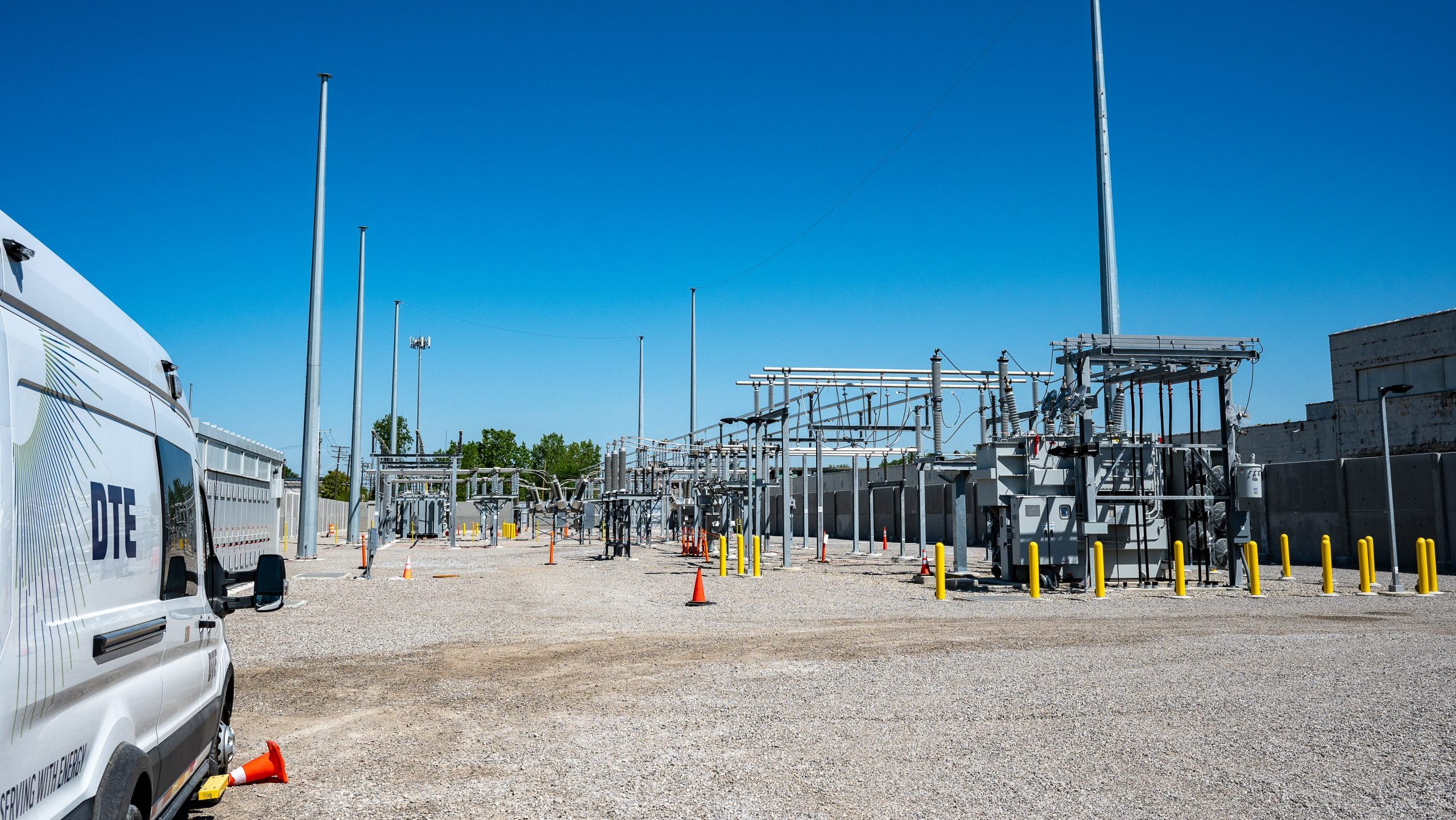
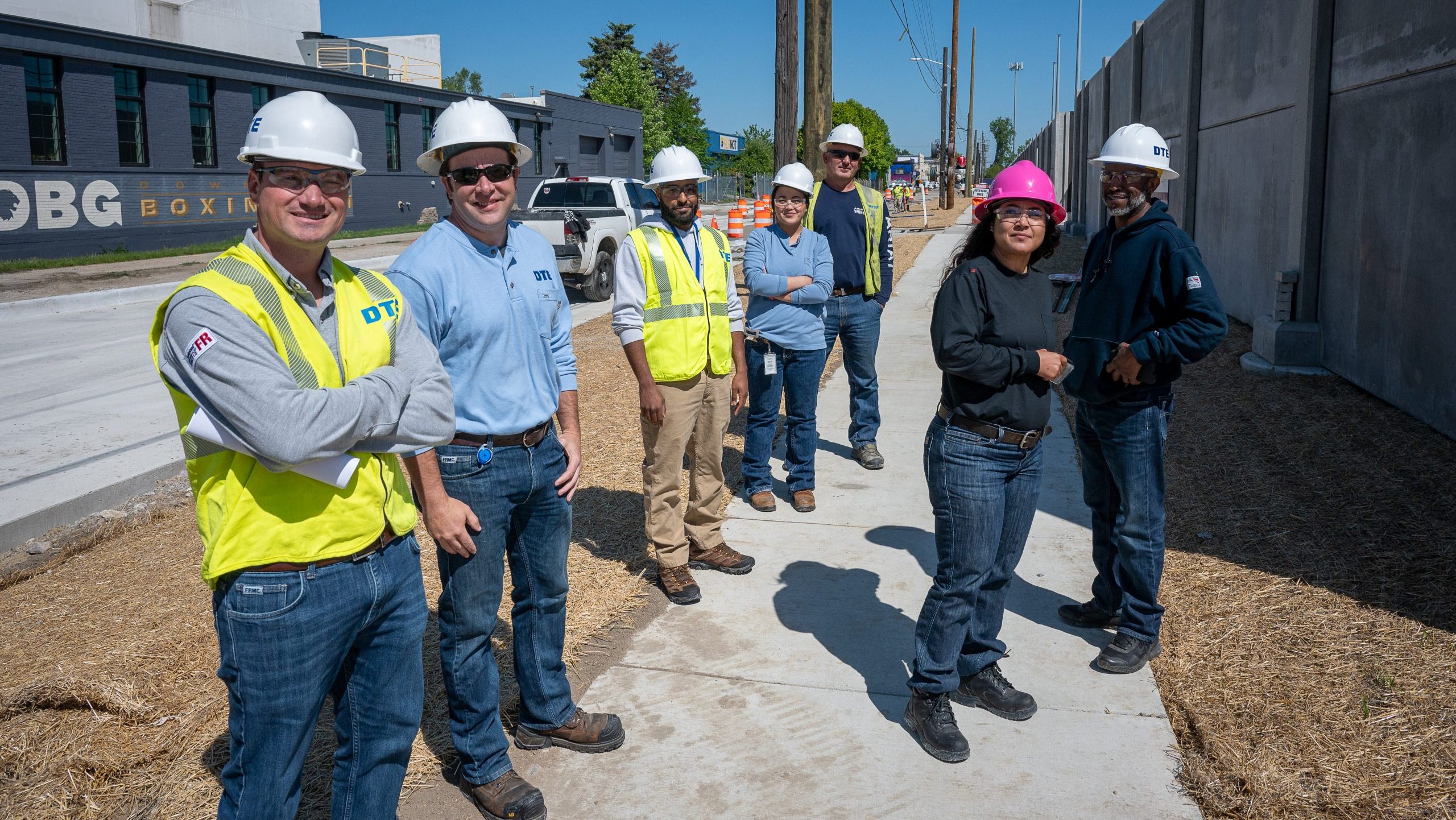
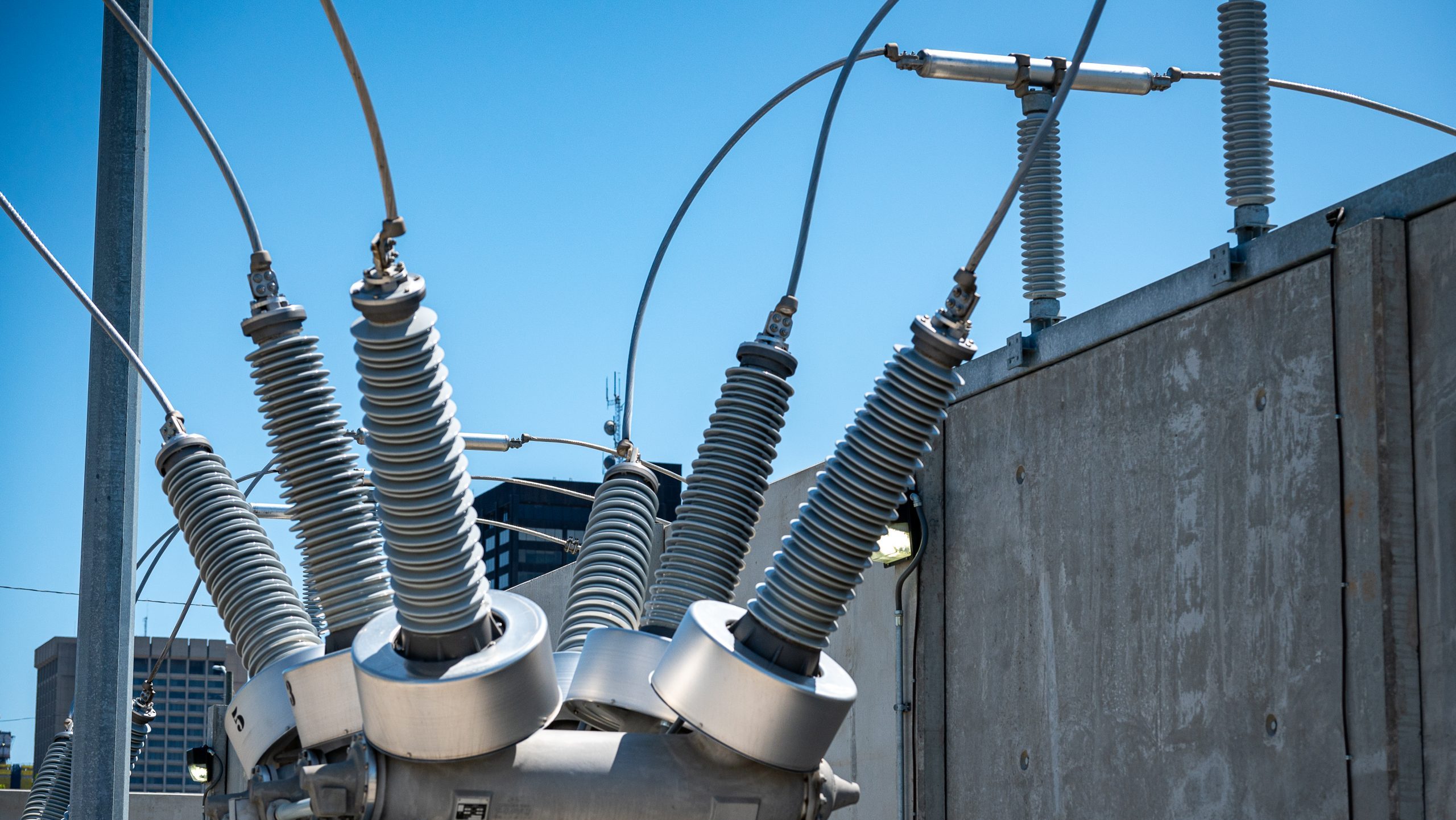
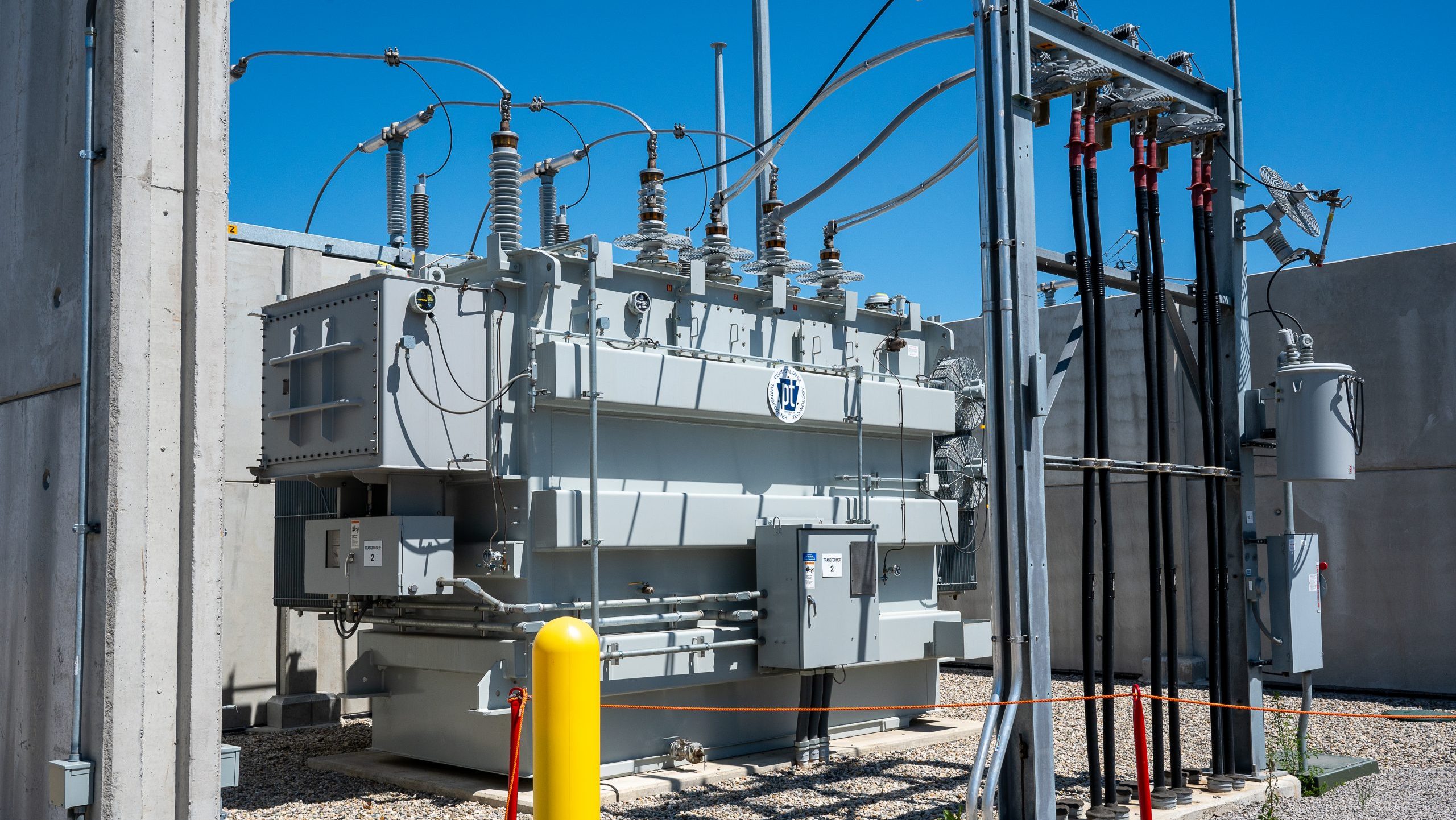
For decades, transformers in substations sit in oil to cool it and keep it stable. The new modular method of easily replaceable switches and fuses will reduce the time the power is off.
“This stuff is just really faster for our inspection time, and we can come in and knock these out in less time and be able to get customers [power] back right away,” claims Mitchell.
This new substation, similar to the one recently built in Corktown, will be donned with automated relays that send alerts directly to DTE’s headquarters
However, residents in the Gratiot Grand neighborhood won’t see changes until the rebuild for her area is completed in 2028.
Residents like McIntyre are already at-risk due to health and safety concerns during power outages — and are made even more vulnerable dealing with outmoded equipment and predatory business practices.
McIntyre’s message to DTE: “Please give us a break when the power goes out and not have us being charged with the same amount every month, thank you.”
Later this year, the Michigan Public Service Commission — the state body that regulates utilities — will decide whether to approve a rate increase of over $600 million.
If DTE Energy gets the green light, the average customer would pay an extra $12.50 a month.
Editor’s note: DTE Energy is a financial contributor to WDET.
